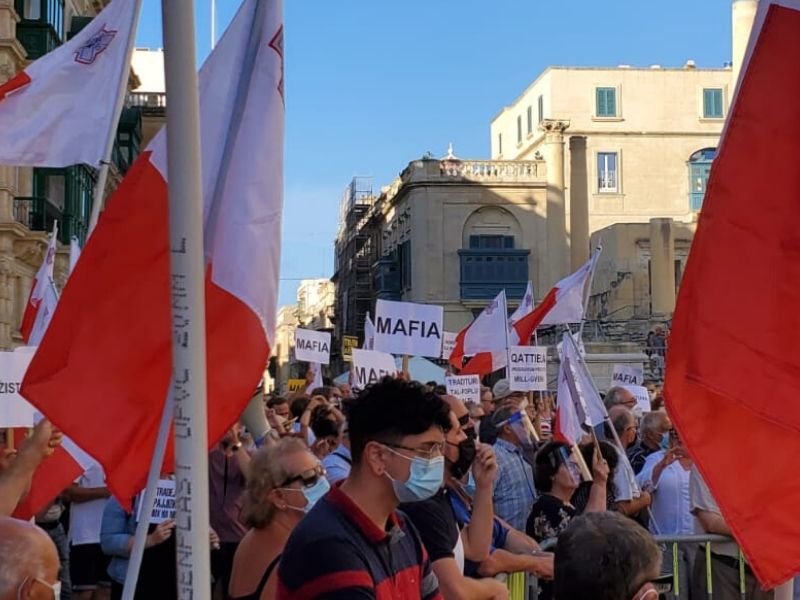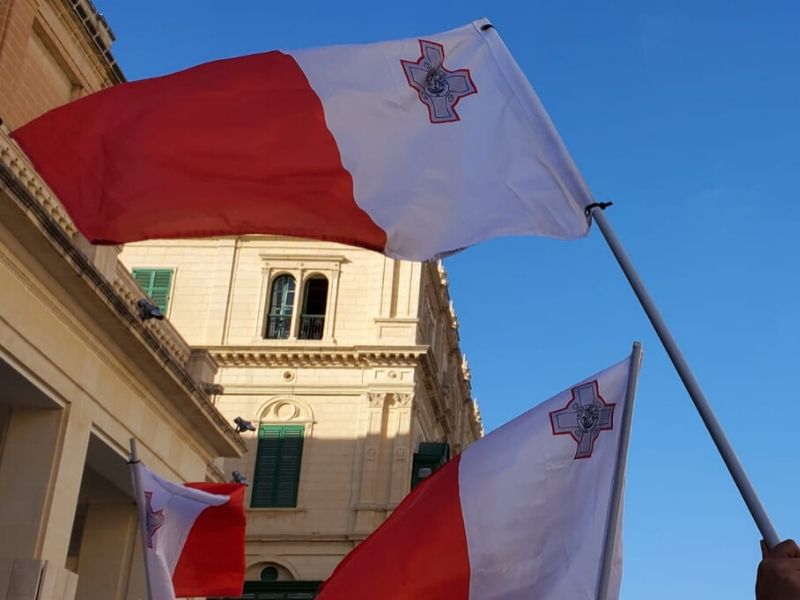Special rapporteur Pieter Omtzigt has welcomed the “hard-hitting” and honest review of the events that dominated 2019 by the Ombudsman, who gave a clear snapshot and feel of what the country was going through in his annual report.
Describing it as a period of “stark contradictions”, Ombudsman Anthony Mifsud said in his annual report that the country’s economic success and material wellbeing at the expense of the disintegration of moral and ethical standards have undermined the democratic texture of society.
There would always be individual cases of corruption and it was important to weed these out – just like bad apples, Mifsud said.
“However, when corruption becomes a way of life, when all are convinced that fat cats would, by hook or by crook, get whatever they wanted, even if that breached laws and regulations applicable to all, if sanctioning of blatant irregularities that should normally lead to criminal prosecution and administrative penalties becomes the norm, the rule of law would be seriously prejudiced,” he wrote in his annual report.
Last year was also the year when civil society was “galvanised into action” and became “more organised, vociferous and proactive”, which also led to the downfall “in disgrace” of the Labour administration.

Civil society took to the streets of Valletta, calling for justice and truth behind Daphne Caruana Galizia’s death.
However, it was not only civil society that clamoured for this change but even international organisations such as the Council of Europe, the Venice Commission, Moneyval and others, which carried out thorough investigations on the State of the country’s institutions.
“They found them to be seriously flawed and suggested radical reforms to bring them in line with the basic requirements of a modern democratic State,” Mifsud said.
Omtzigt, the Special Rapporteur of the Parliamentary Assembly of the Council of Europe, was among those who carried out these investigations on the state of the rule of law in Malta and the investigation into the assassination of journalist Daphne Caruana Galizia.
On social media, Omtzigt listed a number of key recommendations made by the Ombudsman, including a quote where he linked the Labour government to big business.
I welcome the Maltese Ombudsman’s honest and hard-hitting review of the momentous events of 2019 and his recommendations for the future. Some key extracts:https://t.co/zjDF4llJsq 1/n
— Pieter Omtzigt (@PieterOmtzigt) June 22, 2020
Mifsud also expressed concern that international institutions had carried out their own investigations and drawn up their own reports even “before the morbid details of the sinister connections between big business and the public administration at its highest level” that formed the backdrop behind Caruana Galizia’s assassination became known.
The Ombudsman also expressed concern about public authorities directly contesting the right of his Office to request – and receive information – claiming it could not do so. These public authorities seemed to consider the intervention by his office as “unnecessary interference in their administration. Although these cases were few and far between, when the public authorities persisted, the matter was only resolved through judicial proceedings.
“It has been a year of contrast and dramatic change fuelled by the desire to get to grips with major deficiencies in the conduct of public affairs, an awareness that action has to be taken to prevent a democratic implosion and to bolster and strengthen failing institutions before it is too late,” he said.
Towards the end of the year, the national outcry and international concern, ignited by dramatic events that “laid out bare the rot that was corroding the public administration”, precipitated a measure of change that would, hopefully at least, “check the downhill, dangerous trend” Malta had embarked upon.
It all depended on the promised major reforms that had to ensure and secure transparency and accountability and promote a high degree of active public participation, while radically changing the public administration “to ensure that the management of the common good is exclusively made in the interest of the collectivity and not in that of a corrupt few”.
One of the promised reforms by Prime Minister Robert Abela was a new, transparent process for the appointment of the police commissioner, which would take place through a public call for applications. However, this process was criticised for being catered to induct Angelo Gafa’ into the role.
Gafa was sworn in this week and, in his first press conference on Tuesday, announced that Ian Abdilla would be removed as head of the Economic Crimes Unit following years of accusations that he sat on evidence of criminal wrongdoing by top government officials. This move was welcomed by the Caruana Galizia family.
— Paul Caruana Galizia (@pcaruanagalizia) June 23, 2020
Turning to the Venice Commission recommendations, the Ombudsman noted that when it came to constitutional amendments, separation of powers, the independence of the judiciary, law enforcement and the need to strengthen institutions, these were also reflected in the main the proposals made by his Office.
The Bills amending the Ombudsman Act and the Constitution have been tabled before the House and given a first reading but without any prior consultation whatsoever with his Office.
“It is difficult to reconcile this lack of proper, prior consultation with a constitutional authority directly interested in the proposed legislation, with the widely flaunted principles of open government and public participation to which we should all subscribe,” Mifsud said.












